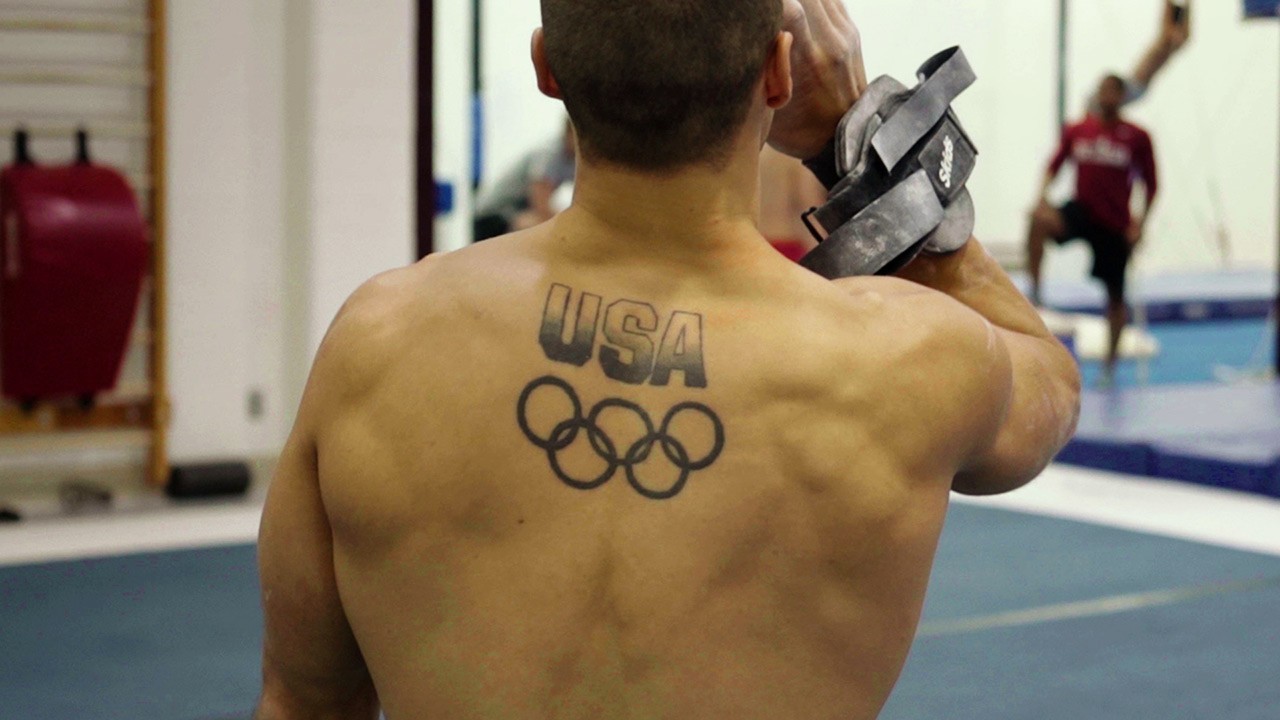Image via pixabay
I was a pretty late start as far as gymnasts go. I went to my first class at seven. I did two or three recreational classes, then the competitive side of the gym asked me to join the team. I started competing when I was eight, which at that gym was already considered pretty old.I was naturally flexible and strong. I could already do splits and chin-ups before I started. I trained 20 hours every week, on Mondays, Tuesdays, Thursdays, Fridays and Sundays. There was a lot of Romanians yelling and a lot of crying on the beam.I remember standing as you do, with one foot in front over the other, willing myself to do a back handspring on the high beam. All I could do was shift my feet, or move my hands from straight up back to my hips. I’d stand so long I couldn’t feel my feet on the beam anymore, which of course makes you more terrified. I wanted to get down, but I wasn’t allowed. If I did take time to regroup, the floor would seem even further away. I remember seeing sweat patches where my feet used to be. I was so scared.Nearly all of the coaches at my gym were Romanian. They would tell us, "You have it so nice—when I was your age I wasn’t allowed to eat candy and I was locked away in the gym so much I didn’t see my parents for years." I always had way more friends at the gym than at school. I couldn’t really hang out with school friends because I had no time outside of training. We went on trips around BC to compete. I was terrified, but I did win medals.When you got to a higher performance level, the coaching was harsher. Kids would get yelled at for gaining weight. You’d be told to put on two sweatshirts and walk lengths of the foam pit to sweat it off. Someone would cry every day, for sure. It was usually someone who was too nervous to go for a skill, or couldn’t stick a landing. You’d try over and over but get worse because you’re anxious. Sometimes the coach would berate you—like you’ll never make it to nationals this way. They’d say you’re not going home until you do it.Those early teenage years are a tough time when everyone is going through puberty. Our head coach was reprimanded by the parent association for inappropriate comments. He would say, “Oh, I see you’re becoming a woman,” or ask us about boyfriends. " Do you have a boyfriend? You’re so pretty, you must have a boyfriend." He had some kind of inappropriate nicknames, too. There was a girl with the last name Fox who he called Foxy Lady.From my experience at my gym in Canada, I couldn’t see sexual abuse happening because there was no place it could have occurred. I didn’t have a physiotherapist or massage therapy. Nobody was ever alone with a coach or anything. I would still say across the sport that sexual abuse is probably rare.I look back fondly on a lot of things, like how strong it made me. I really liked competing a lot. I always felt a lot of pride when I did floor routines. I really liked to show off to the crowd. I would do a front tuck, step out, round off, back handspring, and probably end the tumbling run with a half or full twist. Even at that level I held back more than other athletes. I think every single girl in my group broke her arm except me. It wasn’t until later when I started doing double twists that I got a back injury and had to quit at age 16. Probably every gymnast at my gym had thoughts of quitting. Everyone was sort of unhappy. We had a lot of talks between us, about the pressure, saying, "I hate this," but no, we can’t quit because we love gymnastics. It was like that the entire time.I’ve gone back to the gym as an adult, and I can still do a handspring on a low beam with a huge pad. I thought: Holy shit, this is high for a small child—it’s high for me even now.What I take away from gymnastics is I think it’s good for you—it teaches you discipline and fitness for life. I would definitely put my kids into it even knowing what I went through. I think a lot of young girls think this is just the way everyone coaches, but it doesn’t have to be. The coaching could definitely improve, but it’s an amazing sport that gave me confidence to try rock climbing, swing dancing, aerial silks—whatever—and feel like I’ll be good at it.This story has been edited for length and clarity.
Probably every gymnast at my gym had thoughts of quitting. Everyone was sort of unhappy. We had a lot of talks between us, about the pressure, saying, "I hate this," but no, we can’t quit because we love gymnastics. It was like that the entire time.I’ve gone back to the gym as an adult, and I can still do a handspring on a low beam with a huge pad. I thought: Holy shit, this is high for a small child—it’s high for me even now.What I take away from gymnastics is I think it’s good for you—it teaches you discipline and fitness for life. I would definitely put my kids into it even knowing what I went through. I think a lot of young girls think this is just the way everyone coaches, but it doesn’t have to be. The coaching could definitely improve, but it’s an amazing sport that gave me confidence to try rock climbing, swing dancing, aerial silks—whatever—and feel like I’ll be good at it.This story has been edited for length and clarity.
Advertisement
Advertisement
If I was ever asked if I had a boyfriend I would be embarrassed, but I wouldn’t tell my parents or anything. I was more worried about his bad temper. Some girls left because of verbal abuse. But wasn’t every day. Overall I had a positive experience, but I could see some of the other girls might have been harassed more than the others. I think that coach was eventually let go.When I first read the stories about Larry Nassar I couldn’t believe how long he got away with it. It seems unbelievable how long the US Gymnastics Association didn’t do anything about it. On the other hand, everyone knows a woman who’s been assaulted but didn’t say anything. You brush it off, say it’s not a big deal.When I read the news I had this sudden image of a high-performance gym I trained at for a few months in Australia. I remember asking what this weird dark room was for, and someone saying, " Oh, that’s for the girls going to the Olympics, they go in there for special treatment." That included physiotherapy and massage therapy. I remember thinking I’d love a massage after training, that sounds great. Not that anything bad happened there—but it’s an opportunity for abuse.
Advertisement

